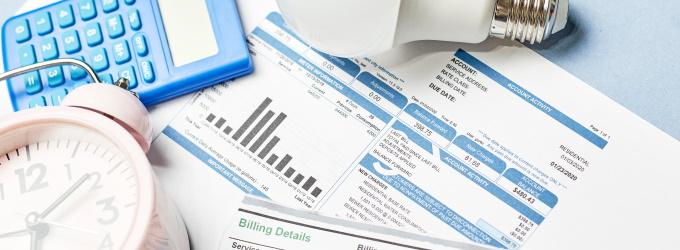Tips for Winterizing Your Home, While Keeping More Money in Your Pocket
While temperatures are cooling off, we often see our energy expenses creeping back up. The U.S. Department of Energy reports that running our heaters costs more than any other system in our homes, accounting for 29% of winter utility bills.
With our home heating systems running round the clock to keep us warm, it pays to prioritize energy-efficiency. You’ll not only save money, but you’ll also extend your HVAC’s longevity. An inefficient system is more at risk of breaking down, which can lead to costly repairs or replacing your unit sooner than expected.
There are a number of ways you can reduce utility bills this winter without impacting your overall comfort. Read on for experts’ recommendations for conserving heat and energy throughout the coldest months of the year.
Keep Winter Utility Bills Low by Adjusting Your Thermostat
Your home heating system needs to run far less when you’re asleep or away from home. If your lifestyle allows it, turn down your thermostat 7° to 10°F from its normal setting for eight hours a day. This can help you save up to 10% annually on energy costs, according to the U.S. Department of Energy.
Thermostats can certainly be adjusted manually, but programmable options make it easy to set your preferred indoor temperatures on a schedule. This also ensures that you avoid coming home or waking up to a cold house. Because a programmable thermostat can be customized to your needs, you have full control over your heat usage and when temperatures return to a normal level.
Find and Correct Any Air Leaks
During the winter, the last thing you want is for warm air to escape from your home and cold air to blow in. Sealing up any air leaks is an important step in winterizing your household. Windows and exterior doors are the most common culprits, but outside air can also seep in through electrical outlets, light fixtures, and AC units.
If you feel a draft anywhere in your home, there’s a good chance heat is being lost. To remedy this, apply new caulk to close up small openings and replace damaged or missing weather stripping. It’s a good idea to check your basement and attic as well, as these areas can harbor some of the worst air leaks. Keep in mind larger gaps may require you to add more insulation.
Replace Your Air Filter to Avoid High Winter Utility Bills
A dirty air filter traps dirt, dust, lint, and other pollutants, impacting your indoor air quality and forcing your home heating system to work harder than necessary. This ultimately drives up your winter utility bills. Routinely changing your filter ensures air can pass through easily and efficiently.
Make it a habit to check your filter once a month and evaluate how dirty it is. Hold it up to a light source – does light still pass through it? If not, it’s time for it to be replaced.
If you have children or pets, switching out your air filter every 30 days is a good rule of thumb. However, some households may be able to wait 60 to 90 days before making the swap.
Leverage Your Ceiling Fans
Many people only think about turning on their ceiling fans in summer to stay cool, but these fixtures can also be used for winterizing your home. Ceiling fans typically rotate counterclockwise, pushing air down, but most models have a reverse switch, so the blades run clockwise, instead. Because hot air rises, this setting creates an updraft, allowing warm air that accumulates near the ceiling to be redistributed throughout the occupied space.
When you’re not in a room, remember to turn off your fan, so you’re not unnecessarily circulating warm air. You may consider closing the vents and doors in areas of your home you rarely spend time in as well. Heating a space no one uses is a waste of energy and only causes your winter utility bills to rise. If these are guest rooms, you’ll simply need to reopen vents and doors when you have visitors.
Have Your Home Heating System Professionally Inspected
Winterizing your home isn’t complete without having your home heating system inspected. Winter HVAC maintenance ensures your unit is prepared to keep you warm and cozy throughout the season.
Regardless of whether you think your system is in tip-top condition, you should still have it checked by a professional. A winter HVAC specialist has the proper training and skills to detect even small issues and fix them before they get out of hand. A quick tune-up can make a world of difference, keeping your unit in better shape for longer and preventing unexpected spikes in your winter utility bills.
Look out for opportunities to save with your HVAC company, too. Many businesses offer service agreements, which allow you to have your system inspected twice a year for less than the cost of two single visits that most HVAC systems need.
Learn more about scheduling winter HVAC maintenance by contacting a trusted local expert near you.


